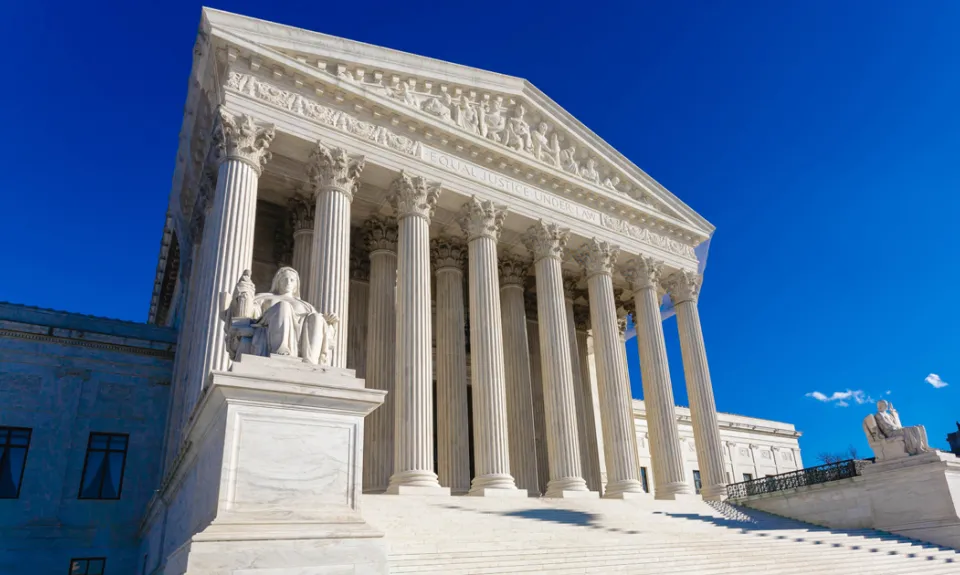“Confirmed Judges, Confirmed Fears” is a blog series documenting the harmful impact of President Trump’s judges on Americans’ rights and liberties. Cases in the series can be found by issue and by judge at this link.
Trump Third Circuit judge Peter Phipps tried in dissent to affirm a lower court ruling that refused to grant relief where the prosecution had withheld exculpatory evidence from an individual later convicted of a crime. The Third Circuit majority rejected Phipps’ view and vacated the lower court ruling in its January 2021 decision in Bracey v. Superintendent.
When state prosecutors accused William Bracey of murder in 1995, their case “relied heavily” on the testimony of one person who claimed that Bracey confessed to him and another who alleged he was an eyewitness. Although the prosecution mentioned at trial that the two witnesses received “favorable plea agreements” on some charges against them “in exchange for their testimony,” the prosecution withheld the fact that there were other serious charges pending against them. Shortly after the trial, which resulted in Bracey’s conviction, the two received favorable dispositions of these additional charges, including complete withdrawal of all charges in one case.
Bracey first learned about this withheld information in 2010, and filed a request for post-conviction relief in federal court, contending that the prosecution had improperly withheld the information about the two witnesses against him in violation of the Supreme Court’s decision in Brady v Maryland. The court rejected Bracey’s claim on the ground that since the information was a matter of public record, he “could have” discovered the improper withholding earlier and filed his request within the usual timeframe for such petitions.
Several years later, however, the full Third Circuit rejected in the Dennis case the argument that an individual could have discovered improperly withheld information by searching the public record, and ruled that a person has no obligation “to scavenge” for possibly exculpatory information in the public record. The court in Dennis held and that the prosecution has an “absolute” duty to disclose all such information. Acting on his own without counsel, Bracey asked the district court to reconsider its decision in light of Dennis, but the lower court refused and the case went to the Third Circuit.
In a 2-1 decision written by Judge Cheryl Krause, the court of appeals vacated the lower court’s ruling. Although acknowledging that the federal post-conviction statute requires “due diligence” by a petitioner, the majority explained that Dennis effectively changed what due diligence means in this context because a person like Bracey has no obligation to himself discover withheld information, as the lower erroneously suggested in its original decision denying Bracey’s request. The majority noted that the court failed even to consider the effect of Dennis in denying his motion for reconsideration, “summarily” rejecting it without even “acknowledging” Dennis and its effects. The Third Circuit accordingly sent the case back so that the lower court would apply the correct standards in deciding the motion.
Trump judge Phipps dissented. He claimed that Dennis did not change the “decisional law” in the Third Circuit, and that the principle that the prosecution bears the sole burden to produce exculpatory evidence under Brady “had been previously articulated in this Circuit.” Phipps also argued that even if he was wrong on that point, “[n]ew decisional rules” do not “automatically apply” to cases that are closed like Bracey’s, and that Bracey had failed to show the “extraordinary circumstances” necessary to apply Dennis retroactively.
The majority demonstrated what was wrong with Phipps’ claims. They pointed out that the single case cited by Phipps for the proposition that Dennis did not change the law was specifically recognized in Dennis as the one case where “we got it right,” and that “many prior cases” had improperly held to the contrary. As to Phipps’ retroactivity claim, the majority explained that this case concerned only whether a new decisional principle should be applied retroactively to the limited question of whether a decision, should be reconsidered, not whether it should govern “the merits” of the case. The majority explained that Phipps’ approach would essentially write the rule allowing reconsideration of past judgments “out of existence where changes in decisional law are concerned.”
As a result of the majority’s decision, Bracey will have the opportunity to argue that his request for post-conviction relief should be reconsidered using the proper legal standards. If it had been up to Trump judge Phipps, however, that opportunity would have been denied and it would be much harder for people to have decisions against them reconsidered based on important changes in decisional law.
